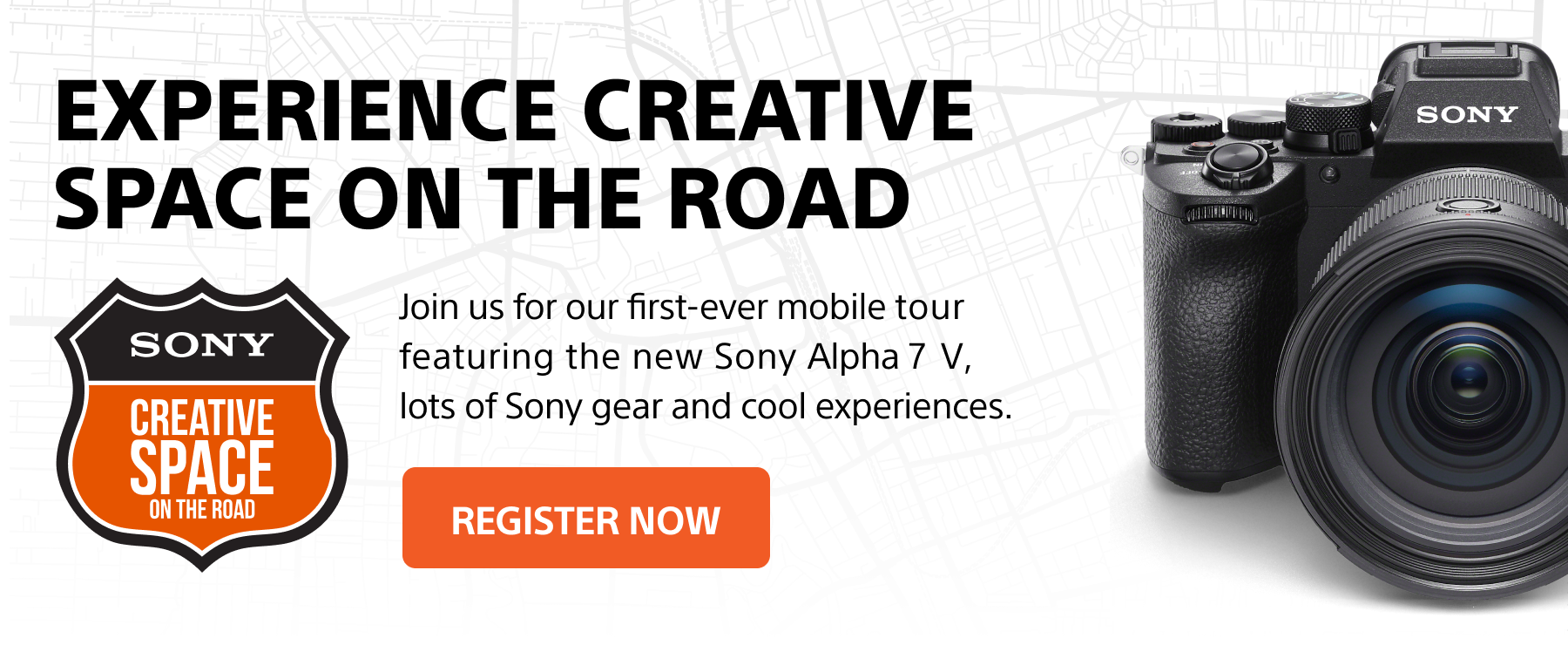The Sony RX0 opens up new possibilities for creatives. It’s not the first camera of its kind, but its unique combination of image quality, build quality, size and durability are opening up new avenues for photographers and filmmakers. In a new project created with 15 RX0 cameras, Dylan Schwartz blurs the lines between photography and video. He built a “bullet-time”-style rig to shoot immersive "3D" portraits.
The cameras were set to still-photo mode as he triggered them remotely. The multiple high-resolution frames were then combined to make the video. “I've actually been wanting to do this sort of multi-camera shoot for a while,” Schwartz explains. “I saw the RX0, and knowing that they can be used for multi-camera rigs, it seemed like a perfect opportunity for this idea. It's a little bit of a departure for me as a photographer because I usually shoot aerials and landscapes and subjects like that. In coming up with this project, I really wanted to figure out an interesting way to shoot portraits. I think that's pretty interesting being able to move around and see a portrait this way from multiple angles. It’s a single frozen moment and you’re moving through space as you view it.”
There are other small cameras that can be rigged together for a bullet-time shoot, but only the RX0 has the combination of image quality and usability. Rigging 15 cameras together, triggering them simultaneously and then processing the high-res files is all manageable with the RX0. And the fact that he could shoot RAW files with the 15.3-megapixel sensor gave Schwartz the ability to move deeper into the frame to add another dynamic effect. “It's kind of a balance between how much distance we wanted to cover visually and how much space there is in between each camera,” he explains. “The camera-to-camera distance is analogous to resolution in a sense. We determined that 15 was kind of the sweet spot. Using software, we could stretch out the time a little without degrading the look.”
He continues, “If we had used something like 30 or 40 cameras we could increase the distance we're traveling around the models, but it also would have created a massive amount of work in post. 15 gave us enough for a smooth animation, a good amount of distance through space and a manageable post-production workflow. I was shooting raw files so every time I hit the remote button to fire the 15 shutters, I was getting a massive ‘file.’”
The models hadn’t ever been part of a shoot like this so Schwartz wanted to show them and explain in detail what the finished imagery would look like. He explains why this was important, “I actually did a test shoot first, and I had an example of the finished product loaded up on my computer. I showed them the software and the rig to explain, technically, what we were doing so they could see how to work in the space. I just broke it all down for them, so when they were sitting there, and improvising, it just felt like they knew exactly what I was trying to achieve.” He adds, “They were definitely excited because the poses are amazing. It’s so different to be able to think of posing for a moment in time like this when you’re not just seeing it from the one angle.”
For Schwartz, part of the attraction to a project like this is just figuring out how to do it. When faced with the new RX0, he set about creating his own challenge. “I think the biggest challenge was figuring out the rig and the angles and the right way to mount and shoot it. Then in post, I think the biggest challenge was figuring out the right workflow. I think, in both cases, for the shoot and for post, once we figured those things out it was really easy, but getting to that point was definitely challenging.”
Figuring out the puzzle was well worth it. “I think the first day we actually loaded it up,” he says, “after digging through all the footage, and spending the hours figuring out the right process…getting to the first finished portrait was amazing. It looked incredible. And that was just the first attempt. I saw it and I thought ‘Wow, this is going to work and this is going to be really cool.’” And with that the project took off.
Dylan Schwartz is part of the Sony Alpha Imaging Collective. You can follow him on Instagram @dylan.schwartz.


